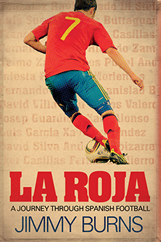Let me cry for Diego
I watched Argentina being knocked out of the World Cup by Germany in a pub in Sheffield surrounded by bitter-drinking Yorkshiremen, and emerged shedding a tear or two.
Why should Diego’s biographer choose Sheffield of all places to watch Diego Maradona meet his nemesis in Joachim Low? Well those of us with memories will remember that it was from here that just before Christmas 1978, Harry Haslam the manager of Sheffield United flew to Buenos Aires determined to strike a deal with Argentinos Juniors for their emerging talent, a very young Diego Maradona.
The groundwork for the trip had been laid at a series of secret meetings between Haslam and the Argentine club’s representative, Antonio Rattin, the former captain of the Argentine side best remembered for being sent off during a bruising match with England at Wembley during the 1966 World Cup.
Rattin, had retired from football and turned agent. By 1978 he had a small stable of thoroughbreds- or rather largely unknown young Argentine players, hungry and skilful, who had yet to find a permanent place in the national squad and were largely an unknown factor internationally. One that was becoming better known than most but had yet to play for a foreign club was the 18 year old Maradona.
The deal collapsed when the money that was asked for Maradona, including the add-on commissions- proved too hot for the Sheffield board to handle. Haslam abandoned the idea and instead secured the transfer of Alex Sabella.
It is worthy pausing to reflect on what might have happened to Maradona, and indeed British football had Haslam’s negotiations proved successful. Sabella had mixed fortunes at Sheffield. He was popular with the fans but his self-discipline let him down when it came to dealing with the harshness of a Yorkshire winter and the rigours of orthodox training methods. Ardiles, and much later Teves, were among the Argentine players that flourished in England, to the local game’s benefit.
Had Maradona come to England, he may have turned into a better person, but perhaps a lesser player, missing out on the demons that enveloped him while he developed his talent in Spain, Italy, and not least his native Argentina.
The Maradona in South Africa proved to be the flawed genius he had long ago become. The tragic-comic character at press conferences and on the touchline was one that believed his team would win the World Cup because God told him so.
True enough only divine intervention can explain how Maradona has survived all these years, periodically resurrected just when we thought he was dead.
He arrived in South Africa, already hitting back at all those journalists who had noted his apparent incompetence as a coach and predicting failure from the outset.
In the end the myth of Diego’s invincibility was brought crashing down to earth by the reality of a German team that played better because they were coached better against an Argentine team that realised belatedly that Maradona’s genius lay in personal instinct rather than in any system, and there was a limit to which this could turn into a lesson.
That said the Sheffield boys who watched the game last Saturday are not alone in mourning Argentina’s exit from the World Cup. During their time in South Africa, they played moments of exquisite football and produced some marvellous goals. The enthusiasm of the team was catching but no more so than when Diego joined them in mind, jumping up and down on the touchline like an exhilarated school kid, and then kissing his players, one by one, like a Godfather.
If, as I suspect the world cup in South Africa turns out to be among the least inspired in history, it will be the memory of Maradona’s entertaining and briefly magical comeback that will endure.


Comments